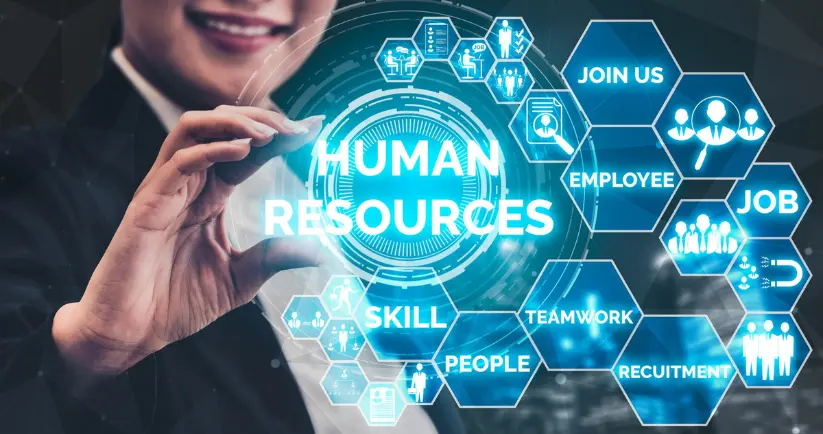Human Resources or HR is essential for managing the ‘human resources’ within any organization. As any good manager would know, when it comes to managing employees, you are required to have a myriad number of skills and competencies which help you navigate the maze of human psychology. Hence, since the HR professionals manage the most valuable resources of any company, they should possess the best skills and competencies.
Hence, we are sharing 19 of the most essential HR skills and competencies, which help them manage their staff effectively. These skills enable the HR professionals to understand the mindset of their employees and make necessary changes to keep them engaged with their company.
Critical Skills for HR Professionals
Critical skills are the expertise that is a must-have for any HR personnel since it helps them undertake their duties. Without these HR professional skills, the HR would not be able to perform their daily tasks. Hence, all HR professionals must identify these key human resource management skills and refine them to stay relevant in the HR industry.
1. HRM Expertise
HRM or Human Resources Management is an essential aspect of HR management skills that enable the HRs to undertake their basic duties like hiring, training, and managing an employee. HR professionals must have a good knowledge of the various HRM practices, as well as have a good grasp on using the various HRM strategies effectively. HRM expertise not only enables the HR professionals to manage their employees well but also helps them understand their mindset.
Having this insight helps the HR professionals to better manage the various employee-related processes such as recruitment, leave processes, attendance, etc. Combined with an effective learning and development process, HRM expertise will also help the HR professionals in providing the right training and upskilling options to the correct employee.
2. Research Skills
Since HR is an evolving field, HR professionals need to upskill themselves constantly to stay relevant in the industry. Hence, they are required to have excellent research skills, which enable them to actively seek out upskilling opportunities. Since the industry is constantly changing, they need to stay on top of the latest advancements to remain updated with the latest best practices, making ‘research’ one of the best HR key skills.
By having a good knowledge of the latest practices in HR, HR professionals who can optimize their employee-handling skills, improving their overall efficacy. Since they stay updated with the latest trends in the industry, they will also be able to suggest process improvements within their organization, leading to the empowerment of strategic HRM.
3. Recruitment Skills
Recruitment is a major task for HR personnel since it helps the organization find, attract, hire, and retain the right talent. Hence, HR professionals should be well-versed in recruitment and selection procedures. Since recruitment deals with finding the right candidate, HR professionals need to use the right words while framing their job descriptions.
Similarly, they need to ask the right queries while conducting interviews, which enables them to shortlist the best candidates. Further down the recruitment management system, they need to be expert negotiators to negotiate salaries with their candidates to ensure that they do not go above budget with their recruitment. Modern recruitment software further simplifies this process by streamlining candidate sourcing, shortlisting, and hiring.
4. Employee Wellbeing
HR professionals also play a major role in retaining staff members using engagement tactics and retention techniques. Since employee wellbeing is a major factor in their retention, HR professionals are also required to be experts in strategizing wellbeing initiatives. Due to these initiatives, the employees will feel valued and remain for longer in the organization.
Strategic well-being initiatives will also help the employees stay mentally and physically healthy, which results in improved productivity, which is ideal for companies. It will also lead to lesser burnout issues, as well as improve the overall employer branding, ensuring better talent retention and attraction.
5. Administrative Skills
Administrative tasks have always remained a part of the human resources department. While the recent advancements in AI technology have reduced the impact of these tasks for HR professionals, it is still a basic component of HR duties.
The HR team is required to undertake various administrative tasks such as handling employee leaves, processing their payroll, administering benefits, etc. Hence, they should be an expert in handling these tasks without any external input. While modern HRs are required to have other skills such as leadership, strategic thinking, and more, handling administrative responsibilities is still a major part of their skill set.
6. Strategic Thinking
The HR team has become a strategic part of any company due to its significance in handling the human resources of an organization. Hence, modern HR needs to possess strategic thinking abilities. Having this skill enables them to suggest innovative strategies to the upper management, which promotes employee well-being and keeps them engaged with the business.
Similarly, through strategic thinking, HR can deduce meaningful inferences from the data collated by the company’s HRMS, leading to overall improvement within the organization. Hence, strategic thinking is an essential skill which every HR should possess to undertake their duties well.
7. Employee Experience
It is a well-established fact that having a positive employee experience is extremely important to an organization. A positive experience keeps the employees engaged with the company, thereby improving their productivity and loyalty to the organization. As a result, expertise in developing and maintaining employee experience is one of the most important HR skills and competencies.
To improve the employee experience, HR teams who can utilize multiple tools such as employee feedback surveys, rewards and recognition, etc. are in high demand. Usage of such tools provides the HR teams with relevant feedback which can be utilized effectively to make positive changes in the workplace.
8. Leadership
Leadership skills allow the HR to empower the employees to undertake their tasks well. It enables them to enhance their workplace to make it favourable for the employees to grow, rendering the HR with mentorship abilities. Additionally, since HR is a major part of learning and development programs in companies, they are best suited to undertake succession planning strategies, which again require leadership abilities.
With the help of leadership qualities, HRs can also provide the right solutions to their staff who are facing any issues in their workplace. They can coach their employees and guide them on the right path towards career growth too, which requires leadership qualities.
Soft Skills for HR Professionals
While the skills we discussed until now were critical for the functioning of HR teams, soft skills are something which they may not be required to have necessarily. However, it is a well-known fact that HRs with better soft skills are better since they can deal with employees amicably.
So, let us check out these skills:
9. Communication Skills
Since HR is the link between an employee and their company, they should be excellent communicators. They should be able to communicate the needs of the employee to the senior management, while also helping the employees understand the company policies well. Hence, HRs must possess both verbal and non-verbal communication skills.
Moreover, they should be able to communicate both formally and informally depending on the task at hand. Being a good communicator also leaves a mark on others, which helps the HR connect with their staff, helping them leave a mark on others.
10. Emotional Intelligence
It is also essential for HR to have a good Emotional Quotient (EQ), as it enables them to read their employees like a notebook. If an HR has better EQ, they can also understand what drives an individual and utilize it effectively to motivate them whenever required. However, it can also be utilized to engage them, which is a desirable quality for all organizations.
HRs with high emotional intelligence can better understand their staff members, which helps them easily build rapport with them. It enables them to reach out to their employees while being available for them whenever they need to confide in them with their secrets. Hence, HRs should be emotionally intelligent.
11. Adaptability
Companies are constantly evolving and HRs should also change accordingly to stay on top of these changes. Since evolution requires constant change, HRs should remain adaptable to any circumstances. Similarly, they should also be ready for anything, as they manage the employees of the organization, which makes adaptability a must-have skill for all HRs.
By staying adaptable, HRs can also display their commitment towards staying out of their comfort zone. Adaptability also enables them to remain relevant despite any ongoing changes within the organization, making them indispensable for the business. With the current evolution of strategic HR, adaptability will also enable them to upskill themselves for the added responsibility of their role within the organization.
12. Decision-making Skills
HR is a strategic part of any business as they are responsible for managing the employees effectively. Hence, they are required to have excellent decision-making skills, which enable them to make the right decision, even if it is hard. They need to have the right judgment to analyze the facts, understand the repercussions of their decision, and make it for the benefit of the company and its employees.
Making decisions requires a multitude of skills such as strategic thinking, intuition, data analytics, etc. Since it is a complex process, HRs can utilize HR systems with excellent data and analytics options to aid their assessment of the organization and make effective decisions.
13. Objective Thinking
Objective thinking is another must-have skill set for HR since they need to stay objective and look at the bigger picture in every scenario they encounter at the workplace. Since they handle all employees within an organization, they need to remain fair and unbiased. It is essential to remain objective to ensure that they remain unbiased, as it helps them analyze any scenario objectively and provide fair solutions.
For example, if an employee approaches HR to resolve any issue, they need to analyze the evidence presented, understand the facts, and make decisions based on an investigative approach. It enables them to get to the root cause of the issue and resolve it completely.
14. Active Listening
Active listening is another essential skill for any HR as they are required to communicate with their staff every day. Often the employees approach their HR to either resolve an issue or clear a doubt. In this case, the HR must have active listening skills to hear and understand the issue and take the necessary steps.
Active listening also helps the employee understand that their pleas are being heard, inspiring them to remain engaged with their organization. It will also enable HR to resolve their doubts or issues efficiently since they would have a complete idea due to active listening.
Technical Skills for HR Professionals
HR is quickly becoming a strategic partner in ensuring organizational success as its responsibilities are expanding to include strategic employee management. As we have already covered the critical and soft skills required for a successful career in HR, let us understand the technical skills required for the role:
15. HR Technology Handling
In the modern age, where almost everyone is tech-savvy, it makes sense for HR to have the technological aptitude for handling their employees effectively. Additionally, with the advent of modern technologies like digital onboarding and dedicated HR software, HRM has evolved into an industry where technology has become a must-have skillset.
Moreover, modern HR systems provide in-depth analytics that helps the HR teams gather insights, and make meaningful changes that positively impact their staff members. However, to utilize these tools effectively, HRs should have the right technical expertise. Hence, technological aptitude is one of the most essential skills for the modern HR.
16. Finances Understanding
Since HR is required to handle employee payroll, they should also have a good grasp of finances and related statutory compliances. These compliances range from labour laws to company safety regulations, and they can also be different for different states of the country. By understanding the various laws, HR teams can avoid any legal fines for the organization, which ensures smooth business undertakings too.
HRs with a good financial understanding can also allocate salaries that are industry standards, which helps attract the right candidates and retain them. Similarly, various HR processes such as recruiting, training, payroll, recreational activities, etc. require the HR to allocate budgets, which can be undertaken effectively only if the HR team has good financial understanding.
17. Training & Development
The HR teams are in charge of analyzing employee performance and managing their skills. Hence, they should also be highly skilled in understanding their proficiencies and allocating them to the right training routines. Similarly, they should also be well-versed in reading people and understanding their potential, which will help them pick the ideal candidates for effective succession planning.
By promoting candidates as well as aiding them in career development, HRs can make the employees realize their importance to their organization, which also results in increased loyalty and engagement. Hence, employee training and development is an essential skill for any HR personnel.
18. Data Analytics
With the rise of technology and increased development in HR software, data analytics has become critical for the functioning of HR teams. With the implementation of HR software, modern HRs have access to a wide array of data which can be used to optimize their company processes and engage their staff members.
Hence, HRs should be well-versed in understanding the company database and deducing meaningful inferences from it. While HR software will provide them with the required data, it is their observation which will ultimately help the organization thrive. Hence, data analytics is essential for all modern HRs.
19. Reporting Skills
While analyzing databases is a must-have skill for HRs, developing reports to help the management understand the relevance of the prescribed changes is even more relevant for their career. Hence, HRs should be able to develop reports which can be shared with the stakeholders, while having negligible impact on their daily duties.
Additionally, HRs are also required to develop statutory reports which should be submitted to the regulatory authorities within the prescribed time. Hence, HRs should also have the option of generating quick reports, which help them share their data with the regulatory bodies quickly, making the process quick and easy for the HR teams.
Importance of Skills as an HR Professional
Skills are essential to undertake any job in a company. HR skills and competencies enable the HRs to undertake their responsibilities well. Hence, these skills are important for the HR and the company hiring them. The human resource skills ensure responsible management of the employees, leading to a healthy workforce who would also be actively engaged with their organization.
HR management skills are relevant to HRs since they provide these benefits:
➔ A Fulfilling Career
By remaining skilful as an HR professional, you can create an impact in your employees’ lives. Your work can make a difference in the lives of your staff members, which provides them with a sense of accomplishment. You will also undertake more strategic tasks in your organization, having a fulfilling career.
➔ Increased Earnings
As an HR professional with the right HR skills, you can also increase your earnings since you can move to better-paying roles with additional responsibilities. Highly skilled HR professionals will also be considered for promotions, increasing their earning potential further.
➔ Enhanced Job Satisfaction
HR professionals with better skills are equipped to handle more complex issues in the organization, resulting in better job satisfaction. As an HR professional, it also helps them remain engaged with their company, while also boosting their confidence.
Conclusion
HR skills provide you with purpose; it enables you to manage your staff effectively while optimizing the organizational processes. Since you are required to manage the human resources in your organization, you should be multi-skilled in your approach towards handling your duties.
The HR management skills which we have bifurcated and explained in this article are the basic skills required by all modern HRs. By developing these skills, personnel in human resources can not only transform their organization but also improve their worth and achieve success in their chosen industry.









